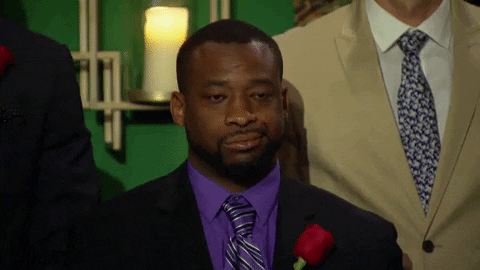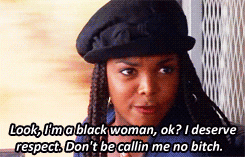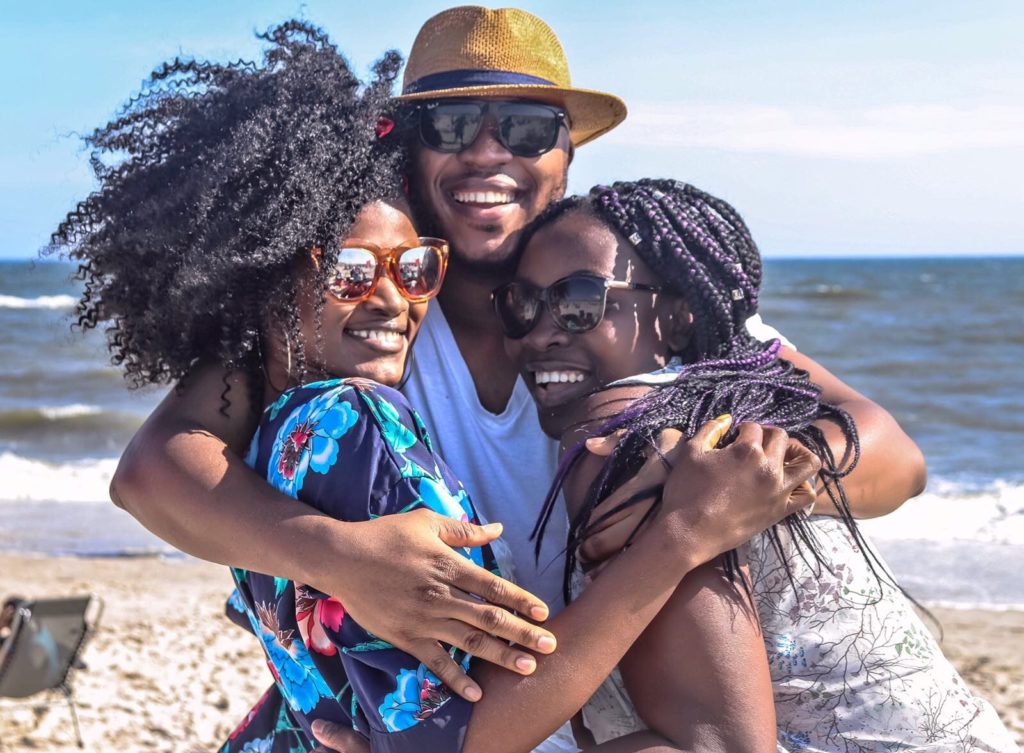Once upon a time a group of young adults met the new kid at school and his name was DeShawn. To welcome him into their group they wanted to go out to the movies. In this group of friends everyone had permission except for DeShawn.
But DeShawn really wanted to go and he tells his friends that he has to ask his mom if he’s allowed to. The next day he comes back and tells his friends he’s not allowed to go, and this is what they say:
Chad: She’s not allowed to do that, you know. You’re an adult now. You can do whatever you want.
DeShawn does not go…

A few days later Karen is whining about her grandmother, talking about how crazy Nana is, and how soon they’re going to put her in a home, because she’s too much work and too silly. DeShawn stays quiet.
A few days later DeShawn is invited over to Kyle’s house to play video games. Kyle’s mother tells Kyle to do something and Kyle decides to argue with her about it. Their shouting gets louder and DeShawn says nothing and leaves as soon as he can.
If you know Black people or you are a Black person I assume this is relatable. You may find yourself cackling remembering being that person and feeling so deeply uncomfortable and confused at the situation that you were in.
What the hell do they mean? Sneaking out? Disrespecting your elders?? Arguing with your parents???! White people be crazy.
To explain to the Beckys out there who don’t know what I’m talking about, Black Culture is based on respect and hierarchy; a very complex and important hierarchy. Everyone must know where they land on the hierarchy and act accordingly. That includes your little friends (AKA anybody you’re dating and anybody you bring over to family gatherings). So let’s just break it down a little bit.
Let’s just talk personal situations. There are a few simple rules to be able to find out where you fit into the hierarchy. For starters, the older you are the more power you have. Children and anyone younger have zero power. You aren’t an adult until you’re 25. Maybe. And even then it’s still a long, long way before you truly have any power in your family dynamic and around the Black people in your personal life. Essentially it’s broken on the sections.
There are people younger than you. All of these people defer to you. If you need something done you can ask them and they’ll do it. Generally, unless you give them explicit permission not to, they always use formal language with you, and depending on the age gap will see you as either a cousin, aunt or uncle, grandparent. Different stages in life mean different things.
Then there are your peers. You’re allowed to be goofy with them, you’re allowed to argue with them (at least in your personal life), and you do not have to defer to them in any manner. Depending on your age they may call you to babysit their kids, and then their kids will call you aunt or uncle.
From there things are generally adjusted by generation. Anyone around your parents’ age gets the amount of respect that your parents get, anyone around your grandparents’ age gets the amount of respect that your grandparents will get. If a person is new to you and you are unsure you should guesstimate or be slightly more formal to ensure that you do not disrespect your elders.
As you gain age you gain power, respect, and generally the ability to do whatever you want.
The other main point that arranges people into the hierarchy is gender.

Disclaimer: gender in my experience in Black culture is different than in white culture but we’re not going to get into that right now.
Black culture is generally matriarchal, meaning women are more powerful than men. So the second factor is your gender. Age then gender. If there was an 85 year old man and an 80 year old woman the woman would have more power because they are in the same age bracket. On the other hand a 30 year old man has more power than a 20 year old woman does. Although there is still inherent respect present, there is more formality between them than between similar genders with that age gap.
Because of this hierarchy, Black Culture respect is very different from white culture respect. I saw a meme the other day about respect: “Respect is earned!” it said. I, was confused. Earned!? What do you mean? What kind of nonsense is that?? The reality in Black Culture is that anyone older than you is given respect. And since most people don’t abuse that power, it works. It doesn’t really matter if you like them or if you agree with them, it would be considered horrifically rude to consider yourself above the hierarchy. What do you know that your elders do not? And since most of our elders have suffered more than we have and it is due to their progress that is you are who you are. How dare you not respect them? That’s why Black children get so squirmy when white children talk back to their parents. Not only are we fearful for them but we consider it to be a high-level rudeness and can’t believe they were so daring to do so.
Once it is established where you fit into the hierarchy it makes it very clear what your role in the community is. For instance, at family gatherings you will rarely see young Black people in the kitchen. But they will be sent out, if they are capable of driving, on errands and grocery store rugs. Elder Black men maintain the control of the social atmosphere be that adding energy or controlling that energy and also eliminating problems from recurring. Elder Black women will be in the kitchen talking about families and the way that they are functioning. And the children will be sitting outside given explicit instructions of what they are and are not allowed to do. It’s just the way it is. Guests also fit into this hierarchy depending on how much they have interacted with it. New guests will always be treated with high honor, assuming they are an adult, but the more you hang around, eventually you’ll fall right into line too.. whoever invited you is probably around your age and you will be considered to fall into the same rung of the hierarchy as they do.
Then there are your professional settings. Someone in my life was telling me about talking back to their supervisor and I was physically cringing in my seat due to the pure rudeness of it. Generally, the personal hierarchical rules apply in the professional context also. At times it can get complicated if you are not directly involved with each other or if one has more professional weight and less personal status. Generally this means it will always be harder for the younger person to relax. Although they may be professionally more powerful than their Elder, that person still holds a lot of power over them and their relationship and must be talking to them in a very formal manner at least for a while
Of course there are more layers to this than can be covered in a short article, but this is a good introduction. The way that Black people relate to each other is complicated, and yet we all know how to do it. It’s something that white culture in America does not understand about Black culture and seems to act in the exact opposite way when it comes to respect and valuing age and women. But once you see it, you’ll never unsee it.
http://www.asaging.org/blog/african-american-elders-cultural-traditions-and-family-reunion
*a switch is a tiny piece of vine/tree, preferably a weeping willow, used to disabling children. Although old school can be switched for, a flip flop, hand, belt, or whatever is closest to your mama.


